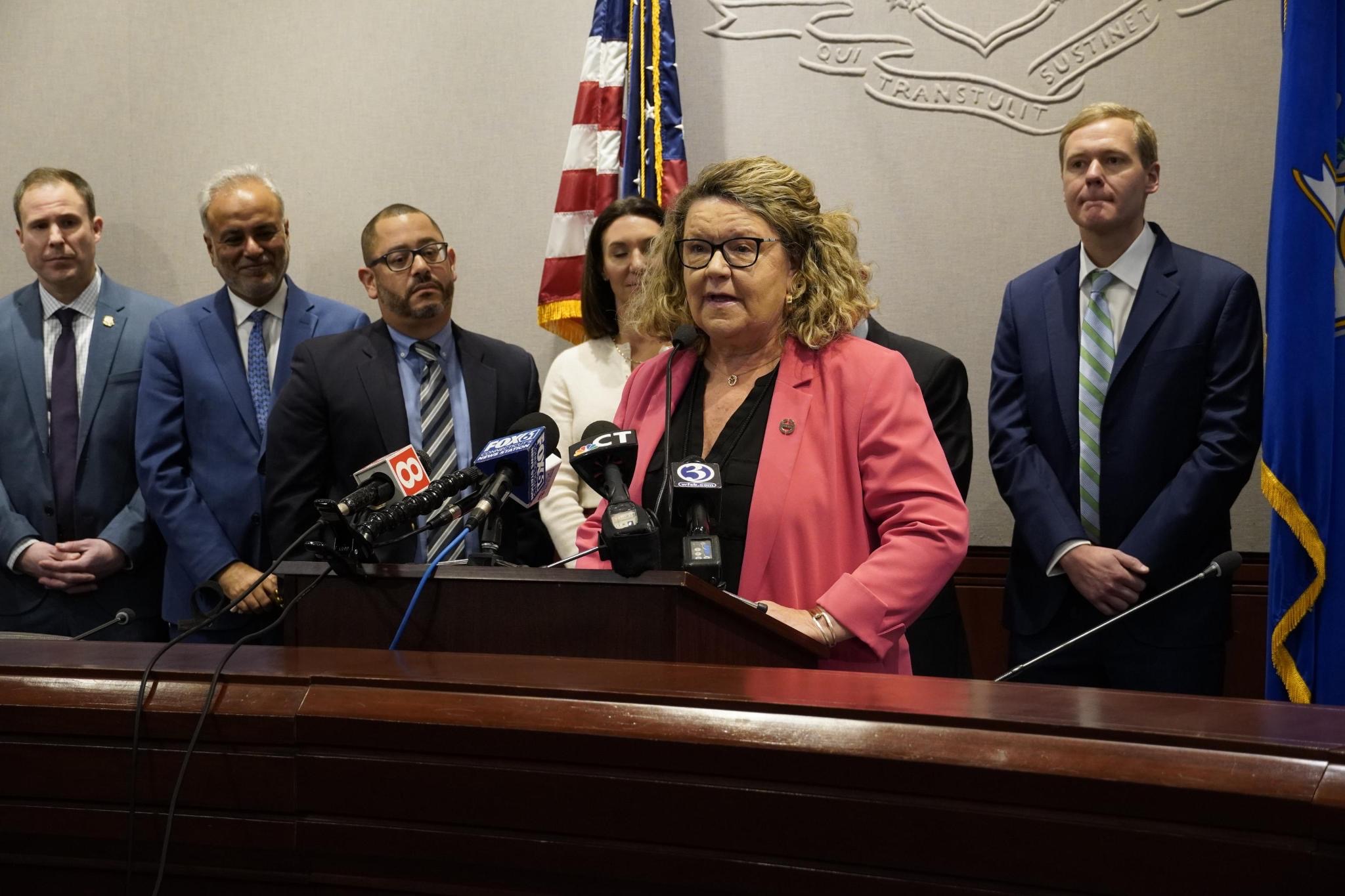Connecticut Legislature to Tackle Housing Affordability
By Hugh McQuaid
January 15 @ 3:08 pm

Addressing Connecticut’s persistent housing shortage will be among this year’s top priorities for the state legislature’s Democratic majorities, leaders of the House and Senate announced during a rare joint press conference this week.
“We know that the lack of housing is holding our economy back,” Senate Majority Leader Bob Duff said during a Monday afternoon press conference in the Legislative Office Building. “We know that too many people are spending too much money every month on their rent or their mortgage because house prices are so high and one of the ways we can tackle that is a supply and demand issue: we need more supply to meet the demand.”
Duff, D-Norwalk, and his House counterpart, Rep. Jason Rojas, D-East Hartford, have led a working group aimed at addressing Connecticut’s longstanding housing shortage, which has inflated costs.
A 2021 Urban Institute study commissioned by the state Departments of Housing and Social Services identified a 86,000-unit gap in affordable housing available to low income families. Meanwhile, Connecticut had roughly 73,000 unfilled jobs, according to statistics from the Department of Labor. The two numbers were not unrelated, legislative leaders said.

“We do need a lot more affordable housing and it’s workforce housing,” said Sen. Martha Marx, a New London Democrat who co-chairs the legislature’s Housing Committee. “It’s the housing for the teachers, for the nurses, for even the young engineers at Electric Boat.”
A 2024 Consumer Affairs report ranked Connecticut among the worst states for renters, in part due its high income-to-rent ratio, which found many residents paying 32%, or nearly one-third, of their income in rental costs.
Rojas said he expected lawmakers would focus on a combination of policies designed to encourage the construction of new housing units and protections for renters. Senate President Martin Looney, D-New Haven, said legislative efforts would include policies to encourage the construction of a broad range of housing types in communities across Connecticut.
“We need to build up the populations of the cities and to do that, we need a combination of some single family houses, we need more apartment houses, where people can rent at reasonable rates, we also need more two and three family houses that are owner-occupied with resident incoming coming in as well,” Looney said.
Despite long standing obstacles to enacting effective policy, Duff said the affordability of housing was a pressing issue among many Connecticut residents. He encouraged lawmakers and advocates to find common ground.
“We need everybody to kinda be on the same page so we can make a big difference for people in the state of Connecticut and that’s what I think is going to be very, very important: is actually finding the things that we can do — and it’s not just the answer of building more apartments or we need to build houses,” Duff said. “We can do all those things, because that’s how we’re going to grow our economy.”
Share this page: